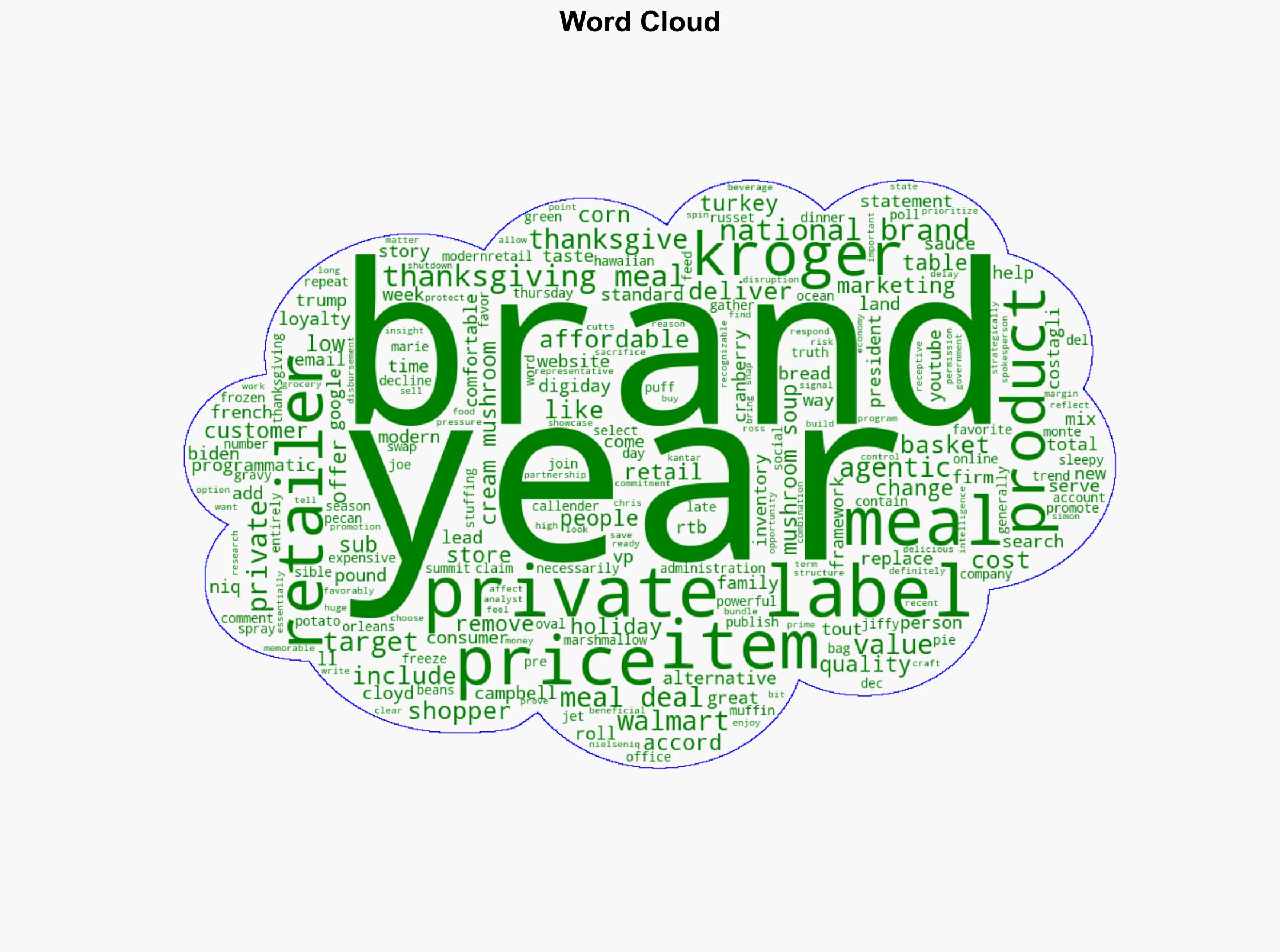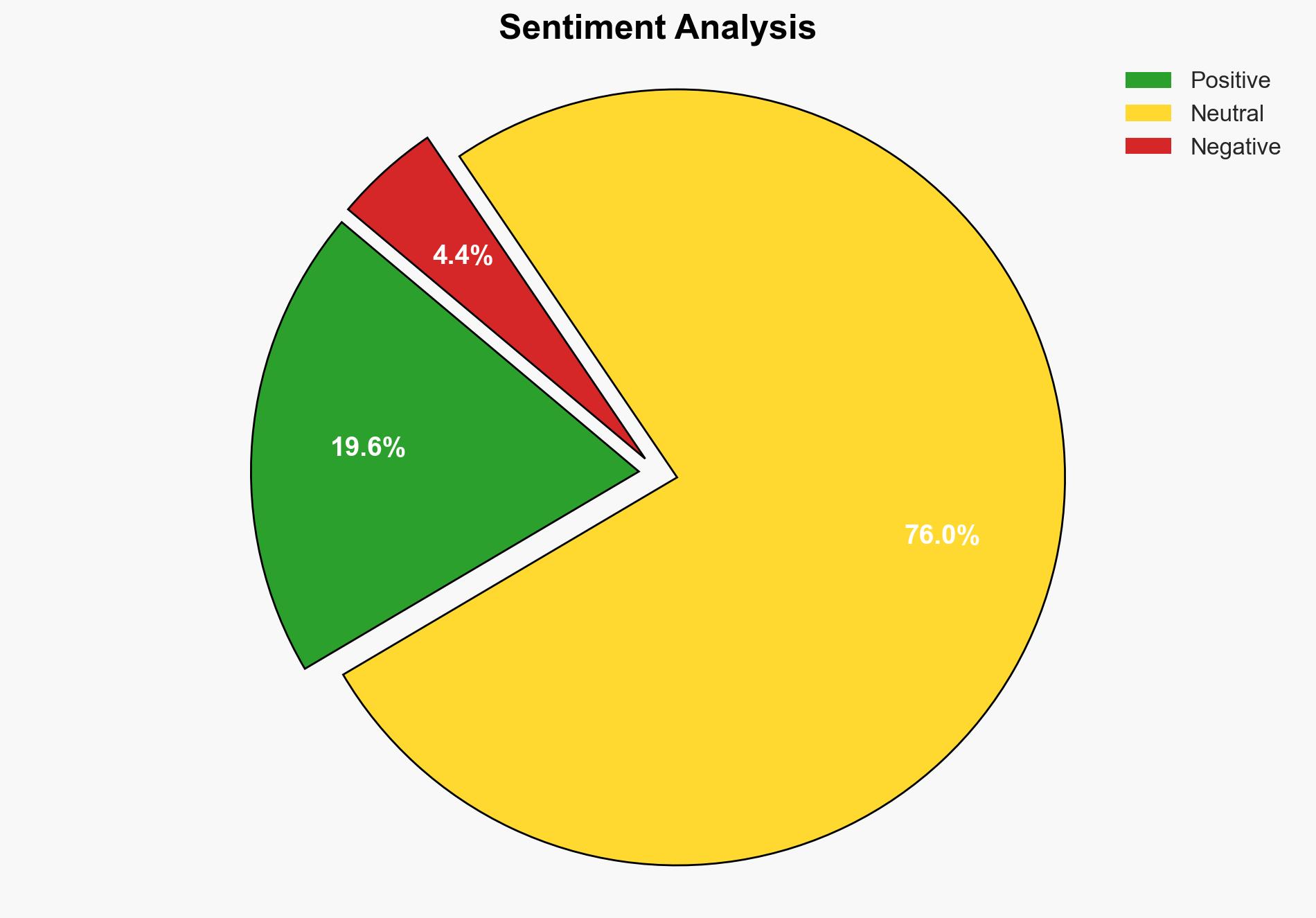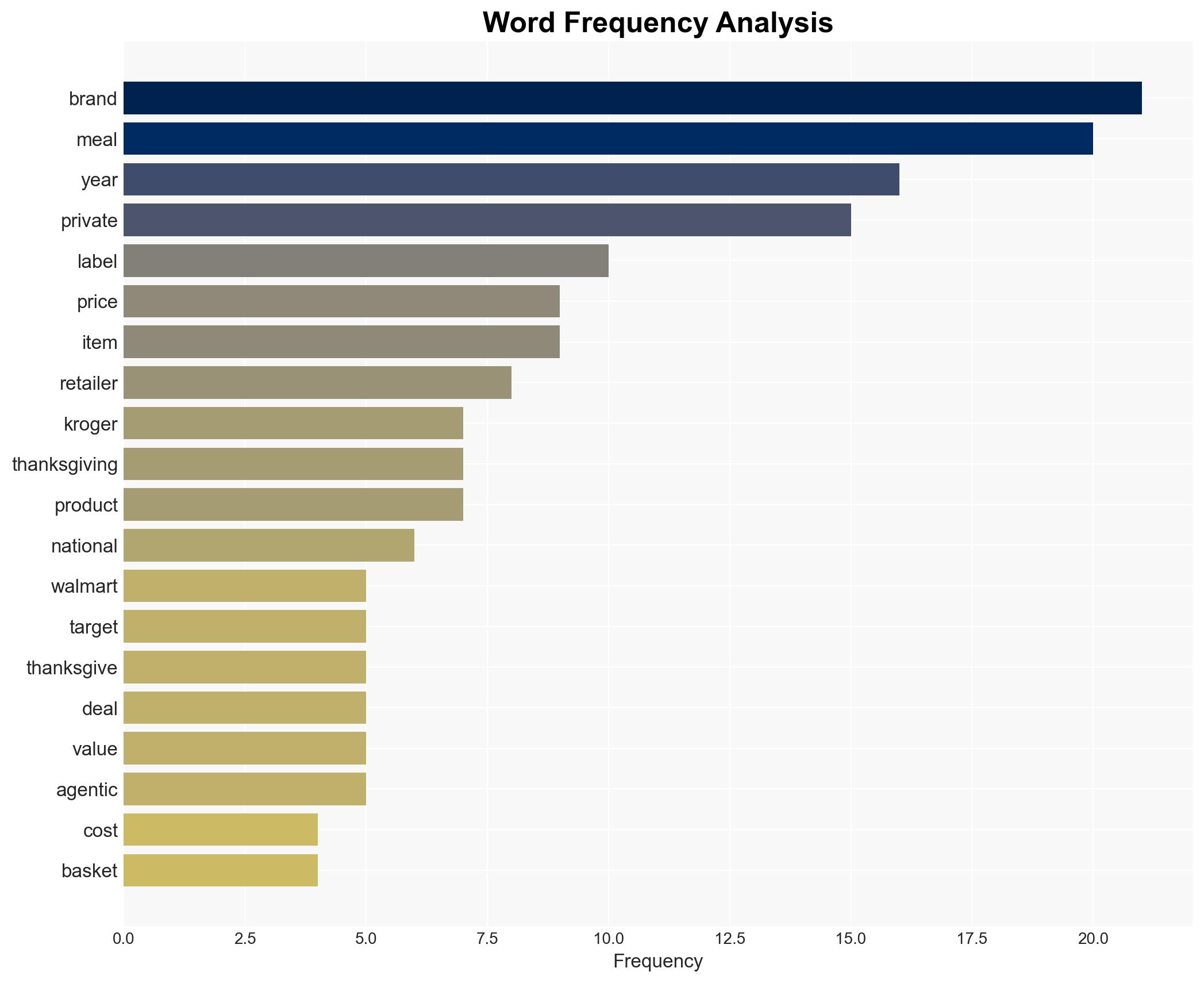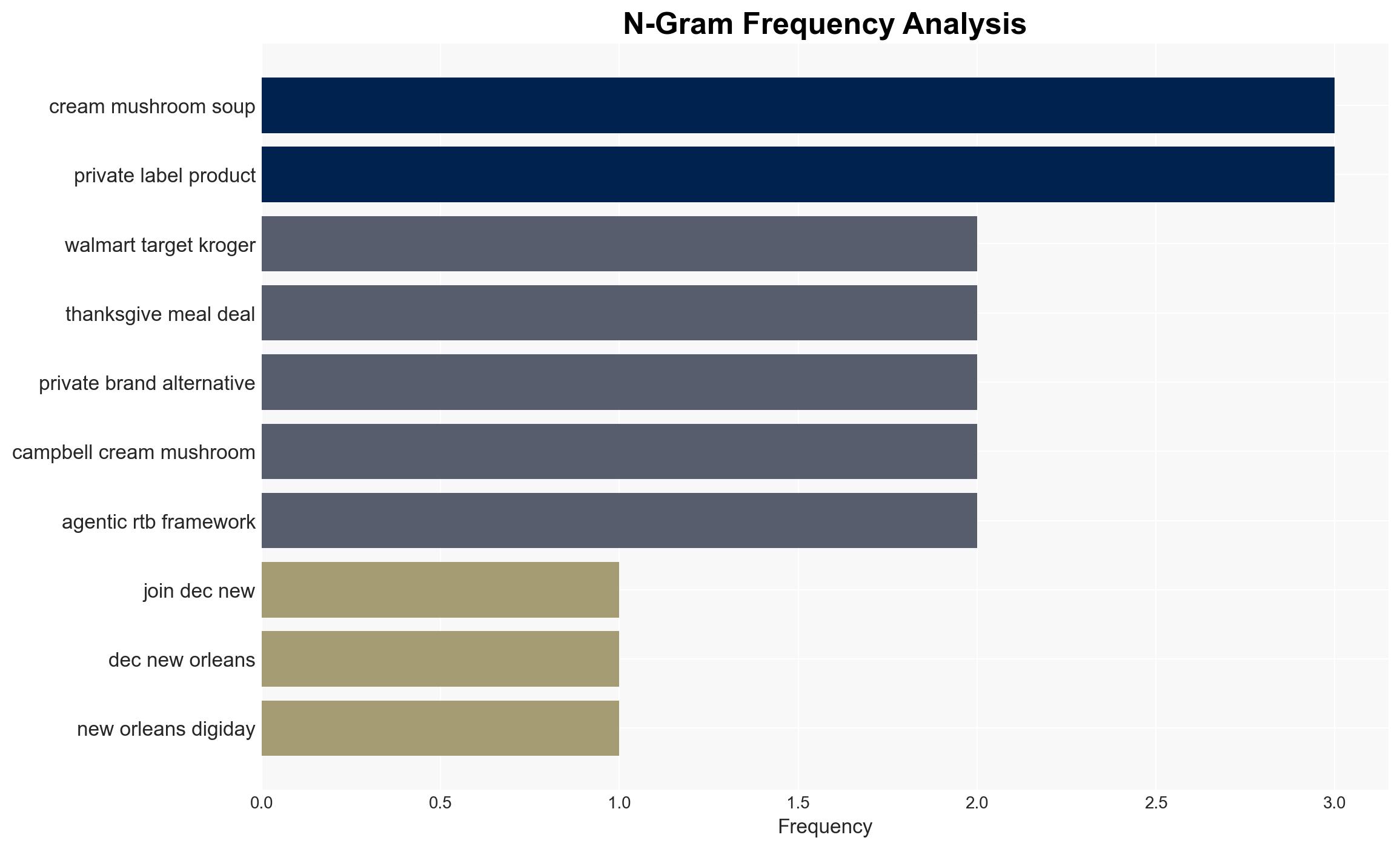Walmart Target Kroger swap name brands for private labels in Thanksgiving meal deals – Digiday
Published on: 2025-11-14
AI-powered OSINT brief from verified open sources. Automated NLP signal extraction with human verification. See our Methodology and Why WorldWideWatchers.
Intelligence Report: Walmart, Target, Kroger Swap Name Brands for Private Labels in Thanksgiving Meal Deals – Digiday
1. BLUF (Bottom Line Up Front)
With a moderate confidence level, the most supported hypothesis is that Walmart, Target, and Kroger are strategically shifting towards private label products in their Thanksgiving meal deals to enhance profit margins and build long-term brand loyalty amidst economic pressures. It is recommended that these retailers continue to monitor consumer responses and adjust their strategies accordingly to maintain competitive advantage.
2. Competing Hypotheses
Hypothesis 1: The shift to private label products in Thanksgiving meal deals is primarily driven by economic pressures and the need to maintain profit margins amidst rising costs and inflation.
Hypothesis 2: The move is a strategic effort to build long-term brand loyalty by familiarizing consumers with private label products, which offer comparable quality at a lower price point.
Hypothesis 1 is supported by the current economic climate, which includes inflationary pressures that could impact consumer spending. Hypothesis 2 is supported by the increasing consumer acceptance of private label products, as indicated by market research. Both hypotheses are plausible, but Hypothesis 2 is slightly more supported due to the strategic nature of brand loyalty development.
3. Key Assumptions and Red Flags
Assumptions: It is assumed that consumers will continue to accept private label products as viable alternatives to national brands. It is also assumed that economic pressures will persist, influencing consumer purchasing decisions.
Red Flags: A potential red flag is the assumption that private label products will consistently meet consumer expectations in terms of quality and taste. Any significant deviation could lead to consumer dissatisfaction and brand damage.
Deception Indicators: There is no overt evidence of deception in the retailers’ stated intentions, but the possibility of overstating the quality of private label products exists.
4. Implications and Strategic Risks
The strategic shift towards private labels could lead to several implications and risks:
- Economic: If successful, this strategy could enhance profit margins and market share for these retailers. However, failure to meet consumer expectations could lead to a loss of market share to competitors who maintain national brand offerings.
- Informational: The perception of private labels as inferior could persist, requiring significant marketing efforts to change consumer perceptions.
- Political: The emphasis on cost-saving measures could be politically sensitive, especially if linked to broader economic criticisms of current administrations.
5. Recommendations and Outlook
- Actionable Steps: Retailers should conduct regular consumer feedback sessions to gauge satisfaction with private label products and adjust offerings as necessary. Additionally, they should invest in marketing campaigns that highlight the quality and value of private label products.
- Best Case Scenario: Consumers widely accept private label products, leading to increased market share and enhanced profit margins for retailers.
- Worst Case Scenario: Consumers reject private label products, leading to a loss of market share and potential brand damage.
- Most Likely Scenario: A mixed response from consumers, with gradual acceptance of private labels as retailers fine-tune their offerings and marketing strategies.
6. Key Individuals and Entities
Simon Cutts, VP Retail Partnership at SPINS; Chris Costagli, VP Food Beverage Insight Lead at NIQ.
7. Thematic Tags
Retail Strategy, Consumer Behavior, Economic Pressure, Brand Loyalty, Private Label Products
Structured Analytic Techniques Applied
- Causal Layered Analysis (CLA): Analyze events across surface happenings, systems, worldviews, and myths.
- Cross-Impact Simulation: Model ripple effects across neighboring states, conflicts, or economic dependencies.
- Scenario Generation: Explore divergent futures under varying assumptions to identify plausible paths.
Explore more:
Regional Focus Briefs ·
Daily Summary ·
Methodology





